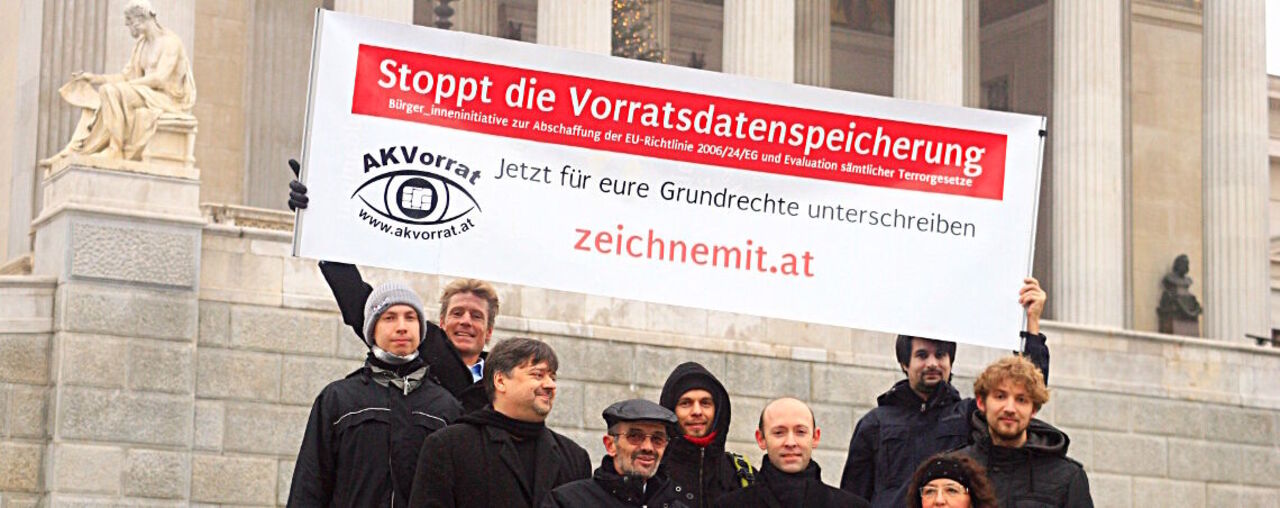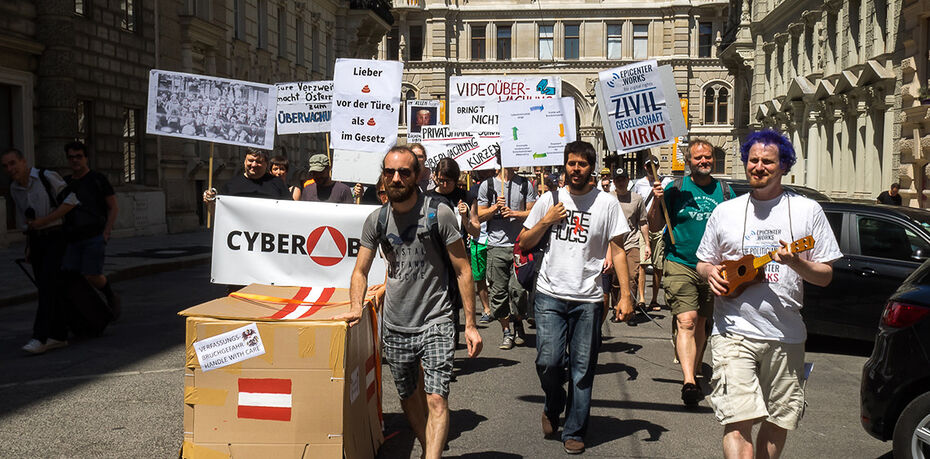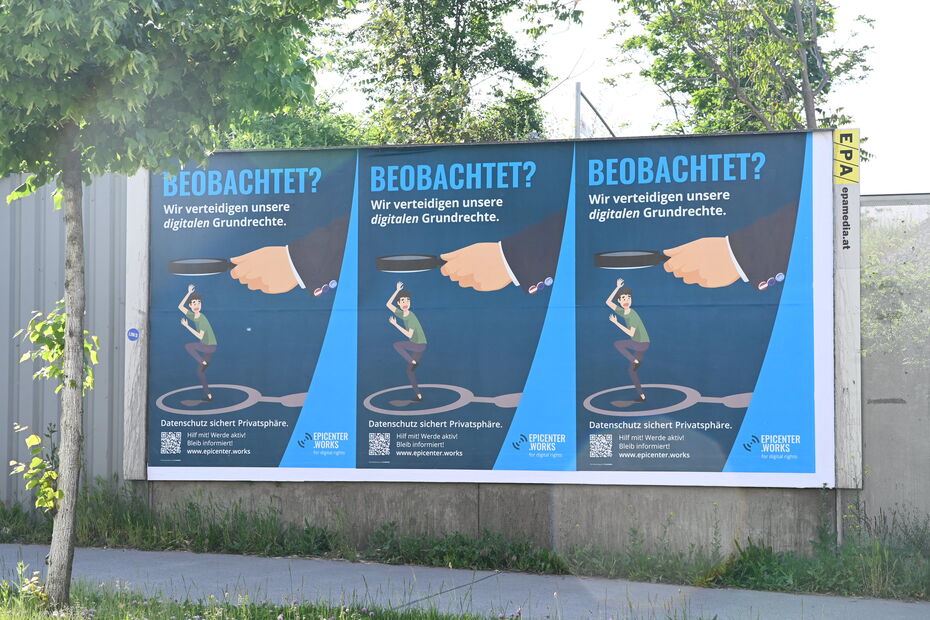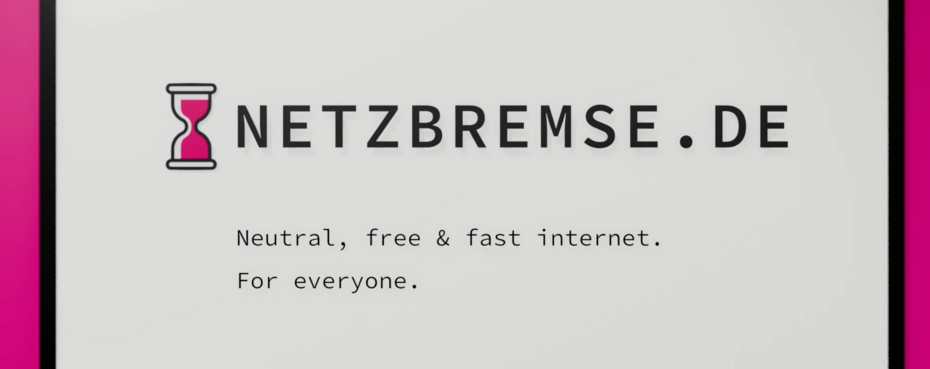2009
AKVorrat presents itself for the first time in the Audimax of the University of Vienna, which is occupied on the occasion of student protests (#unibrennt).
2010
Official founding of the association "Arbeitskreis Vorratsdaten Österreich (AKVorrat)"
2011
Start of the citizens' initiative zeichnemit.at - The aim is the abolition of the EU Data Retention Directive (VDS) and the evaluation and withdrawal of existing terror laws. The Austrian government is asked to become active in the EU Council of Ministers.
Hand over of 4,500 signatures on paper against data retention to the Austrian Parliament and start of the online phase of the initiative Zeichnemit.at.
2012
National implementation of the EU Data Retention Directive in Austria enters into force. Start of the constitutional complaint against the data retention (verfassungsklage.at).
Submission of the complaint based on 11,139 individual complaints to the Constitutional Court (VfGH) together with the Greens.
2013
Final handling of the citizens' initiative in parliament: No positioning of the government against data retention.
Start of the procedure for the future of the Data Retention Directive at the European Court of Justice (ECJ).
EU Commission presents its plans for a Digital Single Market. This also includes regulations for net neutrality.
Launch of SavetheInternet.eu campaign to maintain net neutrality in Europe.
ECJ Advocate General Pedro Cruz Villalón publishes in his conclusions the fundamental-legal criticism of the directive.
2014
European Parliament decides, with a large majority, on strong protection of net neutrality. The SaveTheInternet.eu campaign was able to achieve its goal!
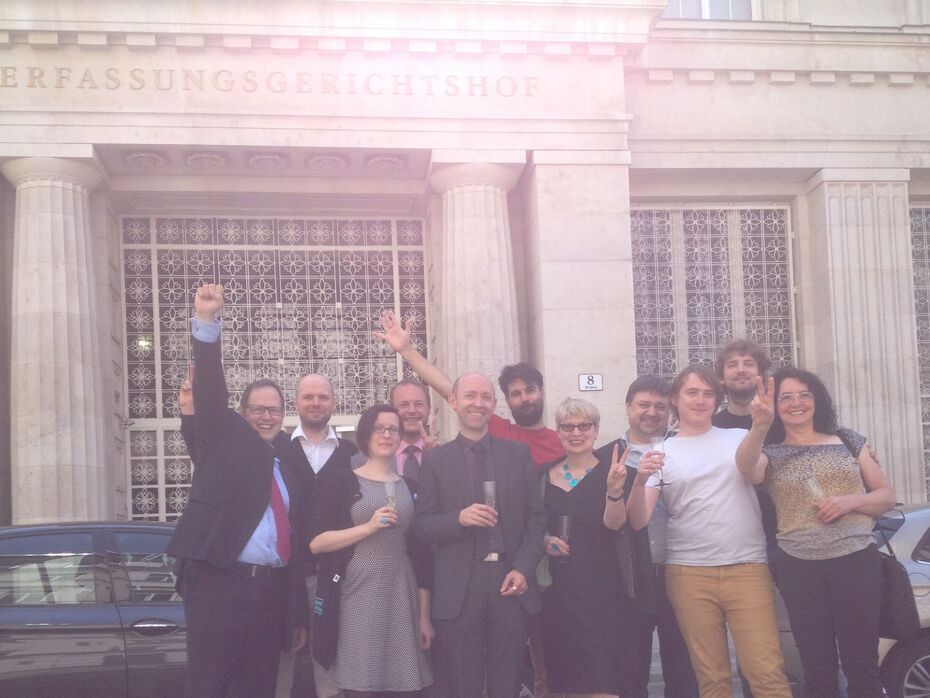
ECJ declares the EU Data Retention Directive (2006/24 / EC) unconstitutional. It was a historic judgment: for the first time in Europe, a directive has been repealed in its entirety and not only in individual provisions.
2015
Launched the project HEAT (Handbook for the Evaluation of Anti-Terror Laws) with the aim to create the basis for a surveillance total bill and to establish a comprehensive impact assessment for security laws.
Draft for the establishment of an uncontrollable secret service - Police State Security Act (PStSG) - is published.
AKVorrat issues a very extensive critical statement on the state protection law in the appraisal procedure.
EU Parliament adopts net neutrality law. It contains some unclear regulations that could endanger a free and open Internet. The SavetheInternet.eu campaign now focuses on the European regulators (BEREC), which are responsible for drawing up the transposition directive.
2016
Police State Security Act (PStSG) is voted in. The criticism of 30,078 signatories to our petition "Stop the State Protection Law", as well as those numerous institutions that have jointly resisted the establishment of a domestic intelligence service, falls upon deaf ears.
Austrian Ministry of Justice presents plans for the use of state espionage software (Bundestrojaner).
AKVorrat publishes a damning statement on the plans to introduce a federal trojan (state espionage software).
Parliamentary clubs of the Freedom party and the Greens bring in a constitutional complaint lodged by experts of the AKVorrat against the police state protection law at the Constitutional Court (VfGH).
The Minister of Justice admits, even during an ongoing action in front of his ministry, that the proposal for the introduction of a state trojan has serious flaws and that - in the face of criticism - he will not pursue this proposal further.
The state protection law comes into force.
Overwhelming success of the SavetheInternet.eu campaign: more than 500,000 comments pro net neutrality The campaign was joined by 23 NGOs from 14 countries. Not least of all, they received support from the inventor of the World Wide Web, Tim Berners-Lee. The final guidelines strengthen the free and open internet in Europe.
Version 1.1 of HEAT is published. The world's first implementation of the concept of a surveillance total bill has been created.
AKVorrat becomes epicenter.works.. The new brand is an expression of the broader spectrum of content that the organization works on.
2017
epicenter.works is clearly positioning itself against the surveillance package proposed by the Minister of the Interior, Wolfgang Sobotka, which includes numerous new fundamental rights infringements, including old government projects such as data retention or the Federal Trojan (surveillance of Internet-based communication). We organize a demonstration in front of the Federal Chancellery within 24 hours.
epicenter.works publishes a proposal by Minister of the Interior to restrict the right to demonstrate. Numerous NGOs and individuals from civil society, including epicenter.works, call for the resignation of the Minister of the Interior, Wolfgang Sobotka.
The campaign ueberwachungspaket.at against the surveillance plans of the federal government is started by epicenter.works. Numerous NGOs supported the campaign from the beginning. Ueberwachungspaket.at provides a simple telephone tool that makes it as easy as possible for citizens to get in touch with their deputies and ministers.
German Telekom is presenting its StreamOn service, which, according to epicenter.works, clearly violates the EU Network Neutrality Ordinance. We publish a first analysis on netzpolitik.org.
A law restricting the freedom of assembly and introducing a basic convictions offense (STGB amendment 2017) is presented in Austria. epicenter.works issues opinions on both laws in the review process.
Foreign Minister Kurz calls for new elections, after which Chancellor Kern announces the "free play of the forces" in parliament. epicenter.works sees this as an opportunity to protect our fundamental rights and bring down the surveillance package.
We submit a comprehensive analysis of the StreamOn tariff to the Federal Network Agency.
Executive Director Thomas Lohninger of epicenter.works speaks at the shareholders' meeting of Deutsche Telekom about the serious consequences of the violation of network neutrality by StreamOn.
The concrete plans for the surveillance package are announced. epicenter.works develops a new tool that allows concerned citizens to easily submit comments to parliament or relevant ministries. A total of more than 9,000 comments on the legislative proposals are being submitted.
Bill Binney, the NSA's former technical director, comes to Vienna on our invitation and strongly criticizes the planned surveillance package.
The "Stop the surveillance package!" campaign is successful. According to the National Security Council, the Minister of the Interior Sobotka declared plans for seamless surveillance in Austria to have failed. The association brings a lawsuit against the Minister after he repeatedly says: "Everybody inside and outside of Parliament, who is against these legal adjustments, plans an attack on the safety of Austrians."
The Austrian Constitutional Court of Justice publishes its findings on the complaint against the state protection law. Although this brings some important guidelines on how the law is to be applied, in substance the result is sobering.
Only 24 hours after the presentation of the program of the new government coalition, epicenter.works publishes a comprehensive analysis of all data rights relevant passages. The conclusion is damning: more surveillance and less privacy.
2018
With the data privacy amendment law "Inneres", the first network policy law of the new federal government, a series of new data protection laws is established. These new laws are extremely problematic from a fundamental rights perspective. epicenter.works establishes itself as one of the most critical voices in the public debate.
The Austrian implementation of the (probably illegal) EU Passenger Name Record Directive goes far beyond the requirements of the Union. In a statement epicenter.works criticizes the Austrian government's extension of data retention beyond the mandate to intra-European flights.
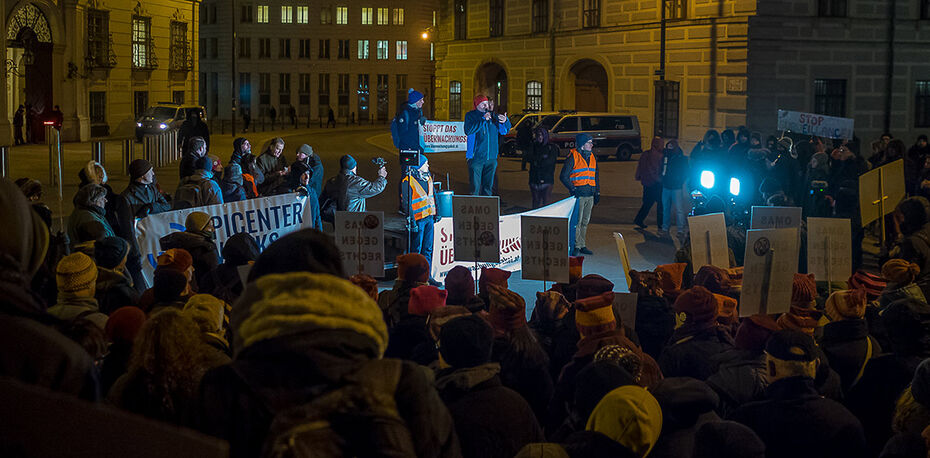
The legislative plans for the new edition of the surveillance package are available. The rally organized by epicenter.works is attended by representatives of all opposition parties.
The Data Protection Adaptation Act Science and Research aims to enable the transfer of personal data from public registers to research-intensive companies. epicenter.works makes this a widely discussed topic.
The campaign website www.ueberwachungspaket.at allows concerned citizens to easily agree to critical comments on the surveillance package. In total, more than 5,000 approvals were received by Parliament.
Since the government does not allow a public hearing on the surveillance package, the opposition parties organize their own. Angelika Adensamer appears there as an expert of the association. In the National Council, the surveillance package is voted in by the votes of the government. Although some improvements have been made, the measures still remain a major threat to democracy and IT security.
Coordinated by epicenter.works, 13 NGOs respond to the consultation with the Portuguese regulator ANACOM. In Portugal, mobile operators are violating net neutrality with their zero-rating offerings.
The draft of the Law on the Amendment of Aliens Law contains numerous measures contrary to fundamental rights. epicenter.works criticizes, among other things, the plans for a "digital house search" of the electronic devices carried by those seeking protection.
epicenter.works criticizes the government's plans to use sensitive health data to automatically detect insurance fraud with a "risk and conspicuousness analysis tool".
Analyzing the changes to 128 laws, epicenter.works notes that the government is opening a large number of backdoors when implementing the EU Data Protection Regulation (GDPR). Existing laws should only be adapted to EU rules and ensure a high standard.
epicenter.works organizes rallies throughout Austria against upload filters and ancillary copyright as well as for a modern copyright reform on the #SaveYourInternet action day.
In a vote on copyright reform, the European Parliament votes in favor of upload filter and ancillary copyright. epicenter.works raises the alarm and warns against censorship and limited media diversity.
epicenter.works prevents the introduction of a new form of data retention through the back door, which was envisaged in the amendment of the Telecommunications Act.
In an open letter, epicenter.works and more than 20 other organizations turn to Ministers Blümel and Hofer, calling for swift negotiations on the ePrivacy Directive during the Austrian EU Council Presidency.
The Austrian government plans to introduce an obligation for real names . We provide 10 reasons why this is a bad idea.
Start of the campaign istkicklschonweg.at , which demands the resignation of the minister of the interior, Herbert Kickl.
The national council passes a law concerning web and information system security (NISG) and adopts our suggestions.
2019
Together with Addendum we expose the postal service data scandal. epicenter.works provides forms,that enable people to easily request the disclosure of their own data and subsequently their deletion.
The social aid statistics law is passed. We analyse the improvements and worsenings compared to the original draft.
The European Parliament votes for the reform of the copyright including upload filters and intellectual property rights for press publishers.
We start our lawsuit against the passenger name records. By going through the courts of all instances we want to abolish the EU law at the European High Court.
We publish the positions of the Austrian political parties in the digital rights election benchmarks.
On platformregulation.eu (en) we publish a detailed policy suggestion for the regulation of large internet companies in view of the upcoming reform of the EU’s eCommerce directive.
We launch our campaign against the retention of passenger name records (PNR). After a complaint filed with the Austrian Data Protection Authority (en), is rejected because the authority found itself not competent, not competent (en), the path is clear for a complaint (en) before the Federal Administrative Court.
We write a submission backed by 23 European NGOs on the big reform (en) of the EU’s net neutrality rules in the context of the new 5G wireless standard. Also in November, we take part in BEREC’s consultation on network termination points and play a part in advocating free choice of routers (en) in Europe.
After several years of fighting against the set of laws on surveillance, we obtain late satisfaction before the last-instance court: Both governmental spy software (“state trojan”) and passenger car surveillance are heard before the Constitutional Court (ge) and declared in violation of the constitution (ge) on 13 December 2019. We provided support with the complaint filed by the political parties NEOS and SPÖ. Thus we helped prevent the state trojan for the third time!
2020
New Conservative and Green party coalition government – We evaluate the internet policy programme of the incoming government (ge). We will keep a close look on the new government’s actions.
Changes to the cooperation of consumer authorities law, telecommunications law and competition law are aimed at introducing blocking (en). In our opinion (ge) we outline why we believe that these changes are ill-advised and why it is particularly important to pay attention to the protection of fundamental rights in this context.
epicenter.works celebrates its 10-year anniversary. As all events are cancelled due to Covid, we are very pleased about the congratulations sent by president Alexander van der Bellen and first lady Doris Schmidauer.
We publish an analysis (ge) of the decision that led to the abolishment of the Polish unemployment services algorithm.
Covid-19 – As a fundamental rights NGO, we scrutinise the first wave of Covid-19 emergency laws (ge) and publish our internet policy recommendations (en).
We express our criticism of the amendment to the 2003 Telecommunications Act and ask what text message warning systems may and may not do. This is our analysis (ge).
On 1st April we publish our preliminary review (ge) of the “Stopp Corona App” developed by the Austrian the Red Cross. Over the Easter holidays we, noyb (en) and recommendations (en), which are by and large adopted quickly by developers.
During lockdown, video conferencing tools are booming. We receive many queries dealing with privacy concerns. Therefore we test the most commonly-used tools and publish a service blog post (ge) aimed at the general public.
Unclear Covid legal provisions and miscommunication within law enforcement have lead to a rise in complaints about police actions. We have time and again used the hashtag #Polizeikontrolle to call for (ge) an independent body to handle complaints about the police, as set out in the government programme.
The pandemic also shines a spotlight on the digital vaccination pass. We criticise the weak points (ge) in the amendments to the healthcare telematics act.
Together with with the political party NEOS we uncover the largest data scandal of the Republic (en), the “supplementary register for other concerned parties” (a list of individuals with income other than from employment, no matter how small). Under the shared responsibility of the finance and economy ministries, personal data of over one million citizens had been accessible without barriers for years.
As part of a joint effort by many civil society representatives, we submit a set of demands for more transparency and fundamental rights in times of crisis (ge) to the federal government.
From the beginning of the epidemic, the education ministry has relied on Google Classroom for online learning. We make an urgent plea for the independence (ge) of Austrian schools from US corporations.
As a consequence of the data scandal surrounding the supplementary register for other concerned parties, the competent minister (economy and digitalisation) invites us to take part in a task force. The results can be found here (ge).
We start our campaign and petition to stop the unemployment agency algorithm (en) with a press conference (ge). This unfair, discriminating and inscrutable system must be stopped.
We publish our preliminary appraisal of the planned set of laws against online hate speech and misinformation (“Hass im Netz”) of the Conservative and Green coalition government. At the time, we still call it Austrian Netz-DG (ge), for the German Network Enforcement Act. Together with Wikimedia Austria we develop suggested solutions and reach out to the competent ministers with an open letter (ge).
In net neutrality matters, BEREC (en) reacts to our criticism and fully follows our recommendations (en) in updating the EU net neutrality guidelines to 5G. Thus we help create the first legal framework that brings together net neutrality and the new wireless standard.
Renewed massive privacy issues with the planned Covid contact tracing system for companies and event promoters. Again we fear unconstitutional passages in the proposed bills and submit our opinion (ge). In connection with the Red Cross’ Stopp-Corona-App, too, we take an active stance in the debate by preparing a suggestion for a bill (ge) that would ensure its use is voluntary.
Our manual on surveillance "Handbuch Überwachung" (ge) is published; it serves as a guidline for a comprehensive surveillance footprint assessment. We again ask the government to evaluate all surveillance laws on a regular basis and to abolish them as appropriate.
We take part in a broad alliance and call for (ge) the establishment of a body for reporting police violence and for the compulsory identification of police officers.
We are again forced to make fundamental objections to the hate speech and misinformation (“Hass im Netz”) draft bills. The communication platforms draft bill aims at the big players, but hits the small participants. Here (en) is our analysis.
We write and organise a global open letter (en) against efforts in South Korea to dismantle net neutrality by introducing termination fees (“sending party pays”). With the help of background materials, we try to communicate this important but technical matter to a broader audience (en).
The first draft of the proposed hate speech and misinformation legislation contains blocking, upload filters and more surveillance. The justice ministry takes three of our four criticisms onboard and repairs the draft bill (ge).
The introduction of the electronic vaccination certificate creates a central vaccination register. Our biggest criticism (ge): it is not possible to opt out.
Data processing of students is subject to the GDPR. The education minister makes a new education documentation bill available for experts to review, which we consider a substantial step backwards (ge) for data protection in schools and universities.
Together with the Vienna University branch of the students’ representative body (ÖH) we publicly demand (ge) the withdrawal and rewriting of the draft bill for education documentation as well as the timely completion of the data protection impact assessment from the minister.
We issue an opinion (ge) on the national implementation of the copyright directive during the preliminary expert review.
2021
We publish our legal opinion and explanatory blog posts (en) on the planned national implementation of the controversial EU copyright directive, which includes upload filters and a tax on links.
Following the November 2020 terrorist attack in Vienna, the government has has come up with a set of legislative proposals against terrorism. We examine the bills closely, express our views in opinions during the expert review phase, and publish our analysis (ge).
In the context of the new telecommunications act, we call for (ge) the independence of the Austrian telecommunications regulator and warn of eroding consumer protection safeguards.
We are deeply involved in the debate on the EU Digital Covid Certificate (“Green Pass”) and are the only privacy NGO to take part (en) in the legislative process in the EU Parliament by tabling amendments.
In cooperation with Chaos Computer Club and the group Zerforschung, we expose grave security vulnerabilities (ge) at Covid testing centres. Sensitive health data of several hundred thousand individuals are affected.
Now that the bill for an Austrian transparency law is finally here, we speak out during the expert review and show (en) why data protection and freedom of information are not at all contradictions.
We analyse the new involuntary commitment act and point out issues (ge) with the dissemination of health data from psychiatric patients.
We comment (ge) on the European Public Prosecutor’s Office and what it means for the system of legal protection in Austria.
We achieve a partial success on the EU Digital Covid Certificate (“Green Pass”) when the European Parliament passes a version of the regulation that includes all of our demands (en) to strenghten data protection. This is precisely what we called for before the vote in an open letter (en) supported by 28 NGOs.
We use the reform of the Austrian telecommunications act as a reminder (en) of the importance of the free choice of routers.
We expose critical security vulnerabilities in the planned Covid Green Pass system in Austria. As planned, the system would have affected the sensitive health data of all members of the social security system in Austria.Our publication (ge) causes the system to be discontinued immediately.
We analyse the sobering results (en) of the reform of the domestic intelligence service BVT, whose name is changed to DSN.
We publish our opinion on the first national law on the Covid Green Pass, the first one to provide an opportunity for experts to review the bill. The result (ge) is particularly disappointing.
Unfortunately the European Commission’s guidelines for the implementation of the EU copyright directive prove once again that protecting the rights of internet users is of no relevance in the EU. We took part in the Commission process as representatives of civil society and were most unhappy with the result (en).
We celebrate the EU legislation on the Digital Covid Certificate (“Green Pass”) as all of our demands (en) have been implemented.
We hold a demonstration in front of the company headquarters of Telekom Austria A1 because the group took part in the internet shutdown (ge) in Belarus.
Proposed legislation to open government databases to research while reducing data protection standards persuades us to nominate the head of government, Sebastian Kurz, for a Big Brother Award (en). We also express our concerns during the expert review phase (ge) for the so-called Austrian Micro Data Center (AMDC).
After a thorough examination of the investigation files against Julian Hessenthaler, we make a joint statement about the case, together with 18 international and Austrian human rights organisations (in 2017, Hessenthaler secretly recorded a meeting in Ibiza that supposedly constituted evidence of corruption and brought down the Austrian government when it became public in 2019; Hessenthaler was subsequently charged with separate drug- and ID-related offences). We found the criminal charges to be politically motivated and warned of the deterrent effect (en) this case would have on future would-be whistleblowers.
We express our views during the expert hearings held by the Austrian media regulator KommAustria on the design of platforms’ transparency reports (ge) under online hate speech and misinformation legislation (Hass im Netz, NetDG/KoPlG).
We contribute (ge) to the expert review stage of the Austrian implementation of the contentious EU copyright directive, and do so in cooperation with several national and international NGOs.
Following the surprise ECJ ruling that led to the ban of zero rating, we express our opinion (en) on the reform of the BEREC rules on net neutrality, in order to ensure the ruling will be implemented properly and comprehensively. The ruling also confirms the legal opinion we have held for many years.
In an open letter by 23 media companies and NGOs, we express our concern about dangerous risks to the freedom of opinion (ge) posed by Austrian copyright law.
Despite massive criticism from many sides, the Conservative and Green coalition government remains committed to its controversial register-based research plans (Austrian Micro Data Center). We keep pushing against it (ge)!
We scrutinise (ge) the new pharmaceutical product and genetic engineering legislation from a privacy perspective.
Following an in-depth legal analysis, together with regional organisations we condemn (ge) the Styrian social welfare law and the pillory for the weakest members of our society created by it.
Jointly with other NGOs, we call upon the EU Commission to come up with a strategy (en) for the defence of civic space .
2022
Together with the public broadcaster ORF, we expose massive security vulnerabilities (ge) on the Covid testing platform oesterreich-testet.at. The treatment of the courageous security expert who first discovered the vulnerabilities shines a light on major failures of responsible disclosure practice in Austria.
We publish (en) a detailed analysis of the EU project for a fully harmonised digital identity for everyone in Europe (eIDAS). On the strength of this analysis, we are invited to the European Parliament four times and our amendments succeed in making a large difference to the legislation.
We help mobilise (ge) the general public prior to the expected verdict against the mastermind of the so-called “Ibiza tapes”, Julian Hessenthaler (see September 2021 for background)
Alongside the Austrian chapter of Amnesty International we express our great concern (ge) about the guilty verdict against the mastermind of the so-called “Ibiza tapes”, Julian Hessenthaler (see September 2021 for background).
We publish (ge) a two-part series on privacy problems (ge) in the Austrian education system, which were exacerbated by the Covid-19 crisis.
As part of our project on the dangerous algorithm proposed by the Austrian unemployment agency (AMS), we organise a panel at Concordia press club. Participants from academia, politics, social partners (worker and employer organisations) and the public service ensure a broad and diverse basis for discussion.

Start of our first tour of unemployment agency offices (AMS) in Upper Austria. Equipped with informational materials and our custom-built “Algomat” machine, we educate local staff members and job seekers about the unfair AMS algorithm (en).
We examine (ge) several laws at the provincial level that deal with the introduction of a levy on second homes.
The legislation on child sexual abuse (CSA Regulation aka. “chat control”) is introduced at EU level. Already on day one we demonstrate in front of the EU’s European House in Berlin and, after a preliminary review of the legal text and accompanying materials, express serious criticisms (en).
Alongside other privacy and environmental organisations, we express our massive concern about the surveillance plans (ge) of Vienna city councillor Ulli Sima.
We organise an open letter to EU Commissioners Vestager and Breton about their recent surprise attack on net neutrality. 34 organisations from 17 countries join us in our severe criticism of what appear to be plans by the Commission to introduce (en) termination fees for content providers who want to reach internet users in European networks.
We are one of 117 European organisations who support the open letter of our umbrella organisation EDRi to the European Commission; it warns about the dangers of mass surveillance posed by the plans for the CSA Regulation (en) (“chat control”).
We issue a legal opinion (en) on the Austrian whistleblower act and sharply criticise it – the draft bill is largely unsuitable for exposing misconduct.
The copyright industry provokes yet another shutdown (ge) of parts of the internet in Austria. This incident prompts us to highlight yet again the lack of a sound legal basis for internet blocking that would protect net neutrality.
Austria is finally getting a disaster alert system (ge). We publish a legal assessment and offer constructive criticism of an essentially good but long overdue suggestion that still lacks a clear time horizon.
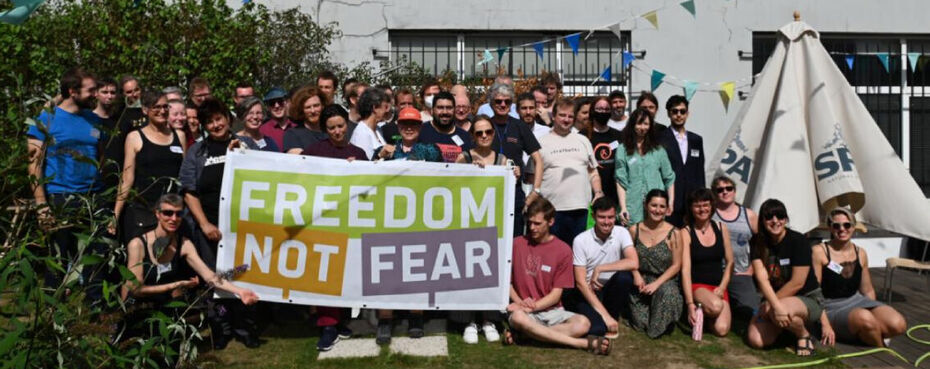
Our team travels to the Freedom Not Fear conference in Brussels, which after a two-year break takes place on-premise and in person again.
Again, we are travelling in the province of Upper Austria to inform locals on the grave discrimination inherent in the algorithm used by the unemployment agency (AMS). To maximise the campaign’s effectiveness, this time the focus is on local communities that support job seekers.
In collaboration with other EU data privacy organisations, we launch the EU-wide campaign stopscanningme.eu against mass surveillance in the proposed CSA Regulation (“chat control”).
Austria introduces a digital drivers‘ licence. We criticise its weaknesses, highlight risks to data security and provide feedback (ge) to the responsible project leaders.
Our treasured academy (ge) project goes live. In our decade-long work we have acquired substantial know-how that we pass on to a larger audience with this project.
We raise the alarm on the profound risks to the data of EU citizens posed by a badly implemented electronic ID system (eIDAS). Read our comprehensive analysis (en) of the EU Member States‘ current compromise version of the legislation.
We score a first partial victory (en) against the proposed CSA Regulation (“chat control”): As the first EU Member State, Austria positions itself clearly against the fundamental rights infringing EU suggestion – this has a binding effect on the Austrian federal government.
We debunk the myths on net neutrality (en) spread by the telecoms industry, their danger to the open and free internet and their far-reaching social and economic consequences. Our concise explanatory victory (en) attracts considerable attention.
The Columbian constitutional court hears a case on the harmful practice of zero rating. We are invited to participate as experts on net neutrality (en).
We release a (legal) analysis (en) of the Austrian Communications Platforms Act (KoPl-G) and compare it (en) with the corresponding EU regulation, the Digital Services Act (DSA).
We take part in the Internet Governance Forum (IGF) (en) in Addis Ababa, Ethiopia. Our managing director Thomas Lohninger holds a talk on attacks on net neutrality (ge) and the European electronic ID eIDAS (ge).
eIDAS 2.0: The Council of the European Union agrees on a version of the proposed digital EU wallet. Unlike the emerging position of the European Parliament, it contains unprecedented risks to privacy. We summarise the current state of play (en).
The European Commission replies to our letter (en) about the network fees requested by the telecoms industry – but unfortunately it does not heed our arguments. Together with 15 other European NGOs we again warn of the far-reaching consequences of this threat to net neutrality. We appeal (en) to the Commission to observe the usual, fair practices in the legislative process and to include all stakeholders.
2023
In its response to our last letter, the EU Commission continues to deny that it intends to introduce additional network charges or the “Sending Party Network Pays” model.
The United Nations is planning a new, comprehensive set of rules to combat cybercrime. We are attending the negotiations of the UN Cybercrime Convention in Vienna as a strong voice for fundamental rights and are publishing an initial analysis of the rough draft of the convention.
The much overdue draft law to protect whistleblowers is finally being discussed in the Austrian National Assembly. Unfortunately, this is not expected to result in better protection for people who expose wrongdoing. We are organizing a press briefing on this flawed law in advance.
We urge MEPs to take a strong line on the new digital eID (eIDAS reform) to protect the highly sensitive data of all EU citizens.
A database containing the residence details of almost all Austrians was stolen from the Austrian office for broadcasting fees “GIS”. We publish an analysis of the case including instructions for those affected.
We expose serious shortcomings in data protection, security and user control in the technical blueprints for the new European eID.
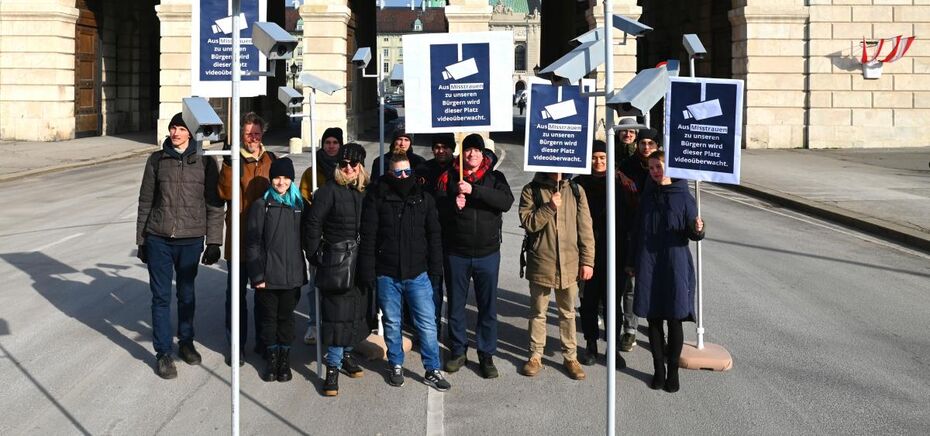
We drew attention to the dangers to fundamental rights, democracy and freedom of expression, as an amendment to road traffic regulations continues to threaten inner cities with surveillance.
We offer support for all stakeholders as the EU Commission is launching the long-awaited and repeatedly postponed public consultation on possible network access fees while taking the side of the telecommunications companies.
What constitutes a genuine public sphere (in the digital space) and what possibilities are there for this beyond the arbitrariness of Elon Musk & Co? Petra Schmidt discusses these questions in her lecture in Zurich. Her thesis is that genuine publicity is only possible with an independent digital infrastructure.
We are delighted about the digital policy evening at the Graz Elevate Festival and would like to thank mur.at & Spektral Graz for their cooperation in organizing the event. Daniel Lohninger presents the epicenter.academy, our educational project.
We talk to Konstantinos Masselos from BEREC (the body of EU telecoms regulators) in the European Parliament about the dangers of additional network access charges – because without infrastructure neutrality, the internet as we know it will be history.
The final trilogue negotiations on the new European eID (eIDAS) are about to begin. We compare the positions of the European Parliament, member states and the EU Commission in a commentary on the start of the trilogue. At the same time, we publish an analysis of the framework for the technical implementation of this new EU digital wallet.
Thomas Lohninger gives a speech at the 20th anniversary celebration of our umbrella organization European Digital Rights (EDRi). He responds directly to the speech by the Vice-President of the EU Commission Margrethe Vestager.
Instead of acting as a role model for Austrian education, TU Wien is switching its mailboxes back to Microsoft. Our criticism of the move away from the previous free solutions is making waves at all levels of the university.
The fifth round of negotiations on the UN Cybercrime Convention continues in Vienna. Tanja Fachathaler and Thomas Lohninger are on site at the negotiations. We speak three times in plenary and emphasize the urgency of actively protecting privacy and human rights in the treaty.

We are organizing a dinner with delegations and representatives of civil society during the UN Cybercrime Convention negotiations.
Together with our four partners, the Electronic Frontier Foundation, Access Now, Article 19 and Global Partners Digital, we are organizing an English press conference on the UN Cybercrime Convention at the Concordia Press Club in Vienna.
The EU Commission's public consultation on the “fair share debate” on additional network charges is underway. We offer assistance in completing the questionnaire in order to make as many voices as possible heard by the Commission – for the protection of net neutrality and the free internet.
In addition to the English press conference, we are also organizing a press conference for Spanish-speaking NGO representatives on the UN Cybercrime Convention at our office.
We are submitting our statement on tightened cybercrime laws in Austria. The important option of “responsible disclosure” to protect security researchers is missing.
Together with 13 other representatives of human rights NGOs and human rights experts, we clarify our demands for the UN Cybercrime Convention in a joint letter to the Ad Hoc Committee.
Austria still has a problem with police violence. Now the long-requested draft law for a reporting office for victims of police violence is finally coming – unfortunately with major weaknesses.
At the POLITICO Tech Europe Summit in Brussels, Thomas Lohninger discusses how the demand for additional network access fees will damage the European internet: Loss of net neutrality, poorer (content) quality and higher prices for consumers.
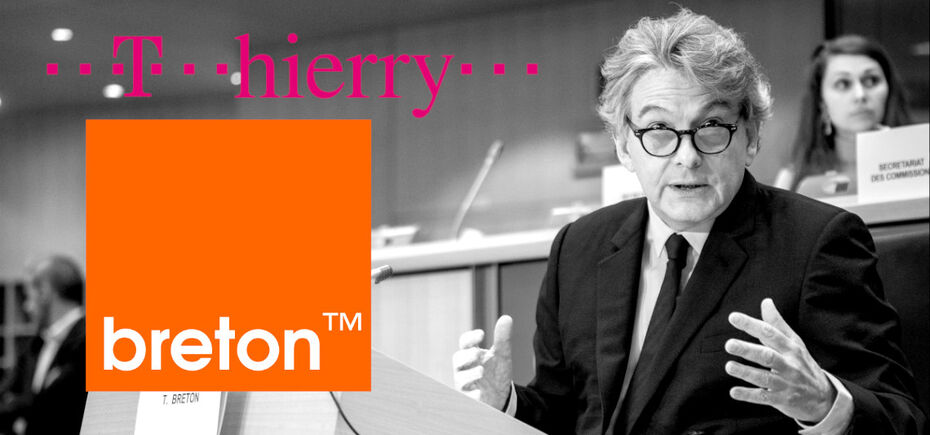
Broad alliance against threat from EU Commission. In a joint statement, we warn against the introduction of network charges.
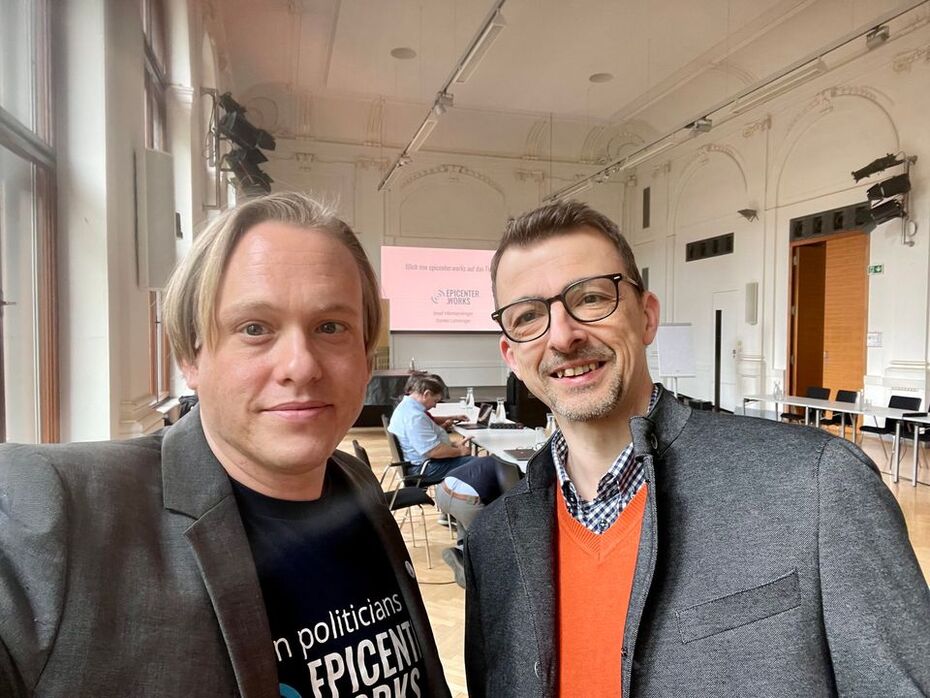
Daniel Lohninger and Josef Hörmandinger open the meeting of data protection officers in the education sector with a keynote speech on data protection issues at schools and universities. Followed by a discussion with experts from the Ministry of Education, the education directorates and the teacher training colleges.
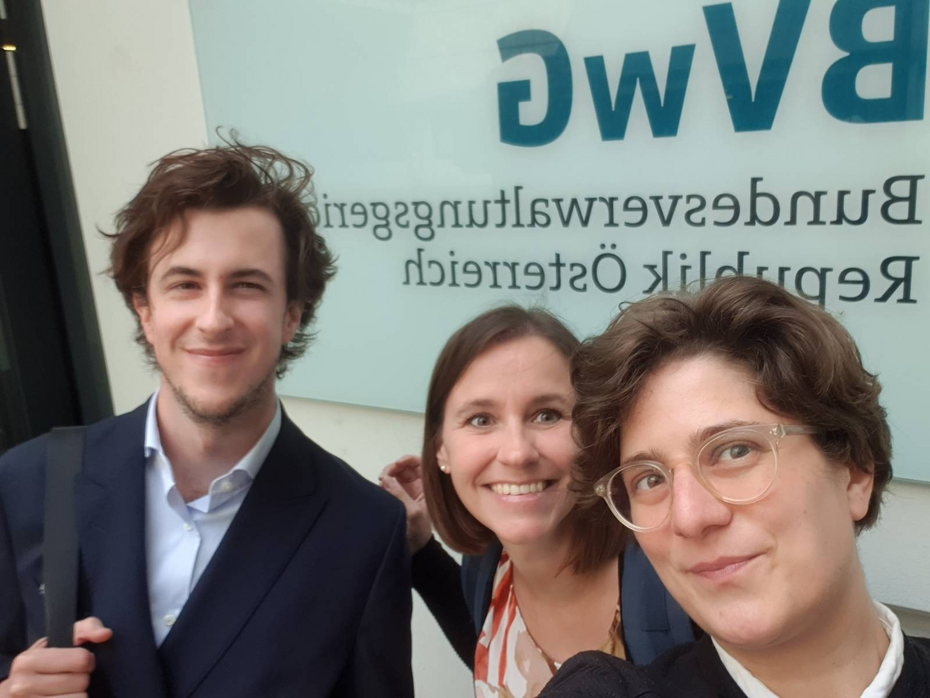
Following the hearing on our complaint regarding the retention of passenger data, we are eagerly awaiting the outcome. We underline our concerns about the constitutionality of the Austrian PNR law with a critical statement.
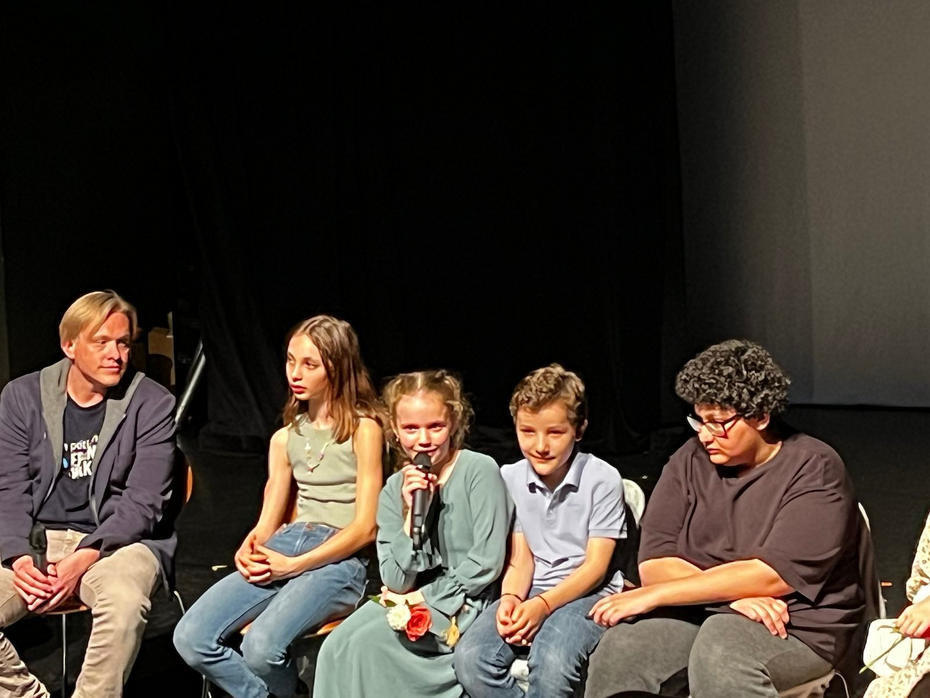
Theater play: “Montags-Kinder” – a humorous but tough look into our digital future? Daniel Lohninger with young actors in a discussion with the audience.
Instead of protecting citizens’ data, the ÖVP prefers to use it for its own purposes. This shows the importance of separating the state and political parties when processing personal data. We are lodging a data protection complaint.
Thomas Lohninger speaks at Rightscon in Costa Rica about net neutrality and how we can best protect our rights in the digitalization of public services.
Despite the successfully prevented attack on the Vienna rainbow parade, Interior Minister Karner and DSN Director Haijawi-Pirchner are once again calling for state trojans.
Despite the successfully prevented attack on the Vienna rainbow parade, Interior Minister Karner and DSN Director Haijawi-Pirchner are once again calling for state trojans.
We support netzpolitik.org's crowdresearch to campaign for transparency and against the exploitation of our data by car manufacturers.
Digital self-defense – launch of epicenter.academy! With the founding of epicenter.academy GmbH, which is 100% owned by our non-profit association epicenter.works, we are completing the pilot phase and going even further.
We publish a response to the demands for inner city surveillance in Vienna's first district, after Mayor Ludwig and City Councillor Sima continue to persistently insist on it.
Together with 67 other NGOs, we are calling on EU Commissioner Thierry Breton to clarify his statements on the blocking of social media platforms by the DSA.
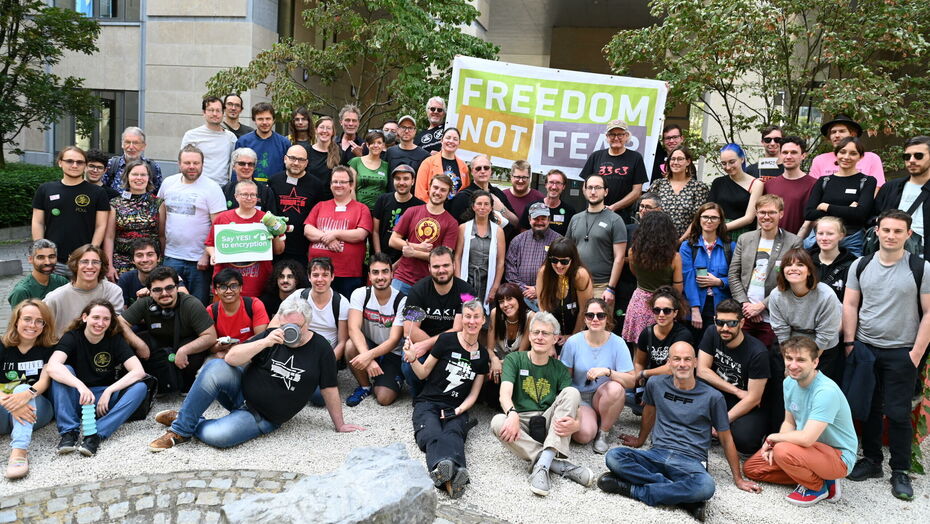
Mobilization for the Europe-wide campaign on chat control, eID, tools for political participation in the EU and much more: We exchange ideas with the European digital rights community at “Freedom not Fear” in Brussels.
In the final phase of the negotiations on the European eID, we warn against removing basic security measures to protect users. Following the negotiations between the European Parliament, EU Member States and the EU Commission, we are publishing an analysis of the outcome.
We are publishing a long list of critical voices from across society on the proposal for a European chat control. Together with over 80 human rights organizations, we warn against unprecedented mass surveillance.
The European AI Act must set limits to surveillance technologies, including in police work, and protect against discrimination. As part of a broad global coalition, we call for democracy and the rule of law to be upheld and warn against biometric surveillance in the public sphere and in the context of migration.
The digital euro and the right to cash must protect fundamental rights and personal data. We analyse the new law from a fundamental rights perspective and speak at a hearing in the European Parliament (Greens/EFA).
We represent our umbrella organization European Digital Rights (EDRi) at a workshop of the European Telecommunications Regulatory Authority (BEREC) on the interconnection of networks on the internet and submit a written statement.
Thomas Lohninger speaks at the Internet Governance Forum in Japan about the dangers of poorly implemented digital IDs and the serious consequences of data tolling (“fair share”) and zero rating on the internet. At the same time, we are working on a global civil society statement on network charges.
Due to the long delay at the EU Commission, we are publishing the 1562 submissions to the public network charges consultation ourselves.
After years of discussion, a draft for an Austrian Freedom of Information Law has finally been published. We welcome the opportunity for a new fundamental right and point out where improvements still need to be made.
On the occasion of the informal meeting of European telecoms ministers, we are joining forces with a broad coalition to warn against complying with the demands of large telecoms groups at the expense of everyone else.
With over 500 scientists and 40 NGOs, we are making it clear to the negotiators from the European Parliament and EU member states: The current compromise proposal on the European eID lacks fundamental security measures to protect citizens. Without these, we must issue a strong warning against the eID.The current proposal would also undermine the security architecture of internet browsers. We make explicit recommendations to remedy this shortcoming.
Digital ID: Our guide on how to use the Austrian eID without big tech. We call on politicians to abolish the partial de facto obligation to use the national eID. With the discrimination protection of the coming European eID, this would be illegal anyway.
Austria lacks an arbitration body to which those for example affected by online hate speech can turn. In our statement on the Austrian implementation of the EU Digital Services Act, we draw attention to this and other shortcomings.
After more than two years of intensive work, the European digital ID is as good as finalized with the last trilogue meetings. There will no longer be any major changes. We draw a conclusion – the good, the bad & the ugly.
State hacking and trojans are still a bad idea. On the occasion of the current demands of the Austrian Intelligence Services (DSN) and the Ministry of the Interior, we are organizing a press conference.
Within 24 hours of our open letter, the Austrian government agrees with us: an opt-out option for the electronic health record (ELGA) must be retained. Shortly afterwards, this voluntary option is also secured in the negotiations on the European Health Data Space.
A serious attack on freedom of the press and freedom of opinion: the head of the Austrian Federal Criminal Police Office is suing cabaret artist Florian Scheuba for defamation. We follow the trial.
The United Nations Cybercrime Convention could rewrite criminal codes around the world. Even after more than a year of negotiations, we still see serious threats to human rights in the revised draft before what is expected to be the last round of negotiations.
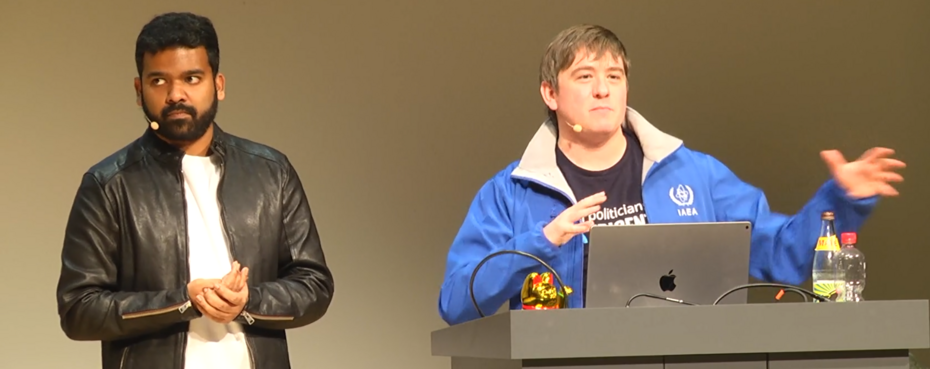
Our team is traveling to Hamburg for the Chaos Communication Congress, the 37C3. Thomas Lohninger and Udbhav Tiwari talk about eIDs, the global trend to digitize public infrastructure, what we can learn from countries like Kenya & India and what we can do as civil society. Check out the slides.
2024
After more than 200 years of official secrecy and over 30 years of public debate, Austria is finally introducing a new fundamental right to access information. At the parliamentary hearing of the Constitutional Committee and during a press briefing with the Forum for Information Freedom and the NGO Saubere Hände (“Clean Hands”), we welcome this long-overdue law - but also warn against last-minute shortcomings that could undermine its effectiveness.
Ahead of what is expected to be the final round of negotiations on the UN Cybercrime Convention, we - together with over 100 organisations and experts - call for a clear and narrow focus on genuine computer-related crimes and full compliance with international human rights standards.
The right to cash is taking shape. We analyse the current changes and caution against rushed decisions on the digital Euro.
The UN Cybercrime Convention risks severely undermining human rights under the guise of fighting crime. In New York, we are standing up as the voice of civil society, advocating for a narrow focus on genuine cybercrime and for full adherence to human rights standards.
By the end of this negotiation round, a broad coalition of civil society, industry, and the tech community has come together to issue a strong warning against adopting the Convention in its current form.
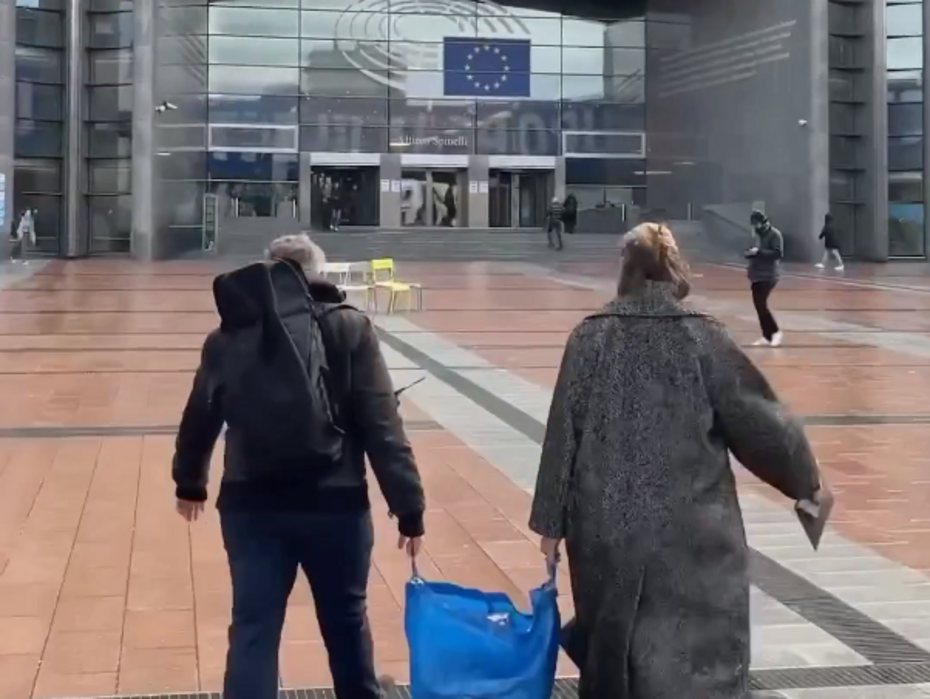
EU Commissioner Thierry Breton appears to place the interests of the telecommunications industry clearly above those of European citizens. Due to the urgency of the matter, we are delivering 705 letters in person to the European Parliament.
The European Health Data Space must uphold patients’ fundamental rights - e.g.by ensuring a clear and accessible opt-out option.
What does an internet that benefits everyone look like? Together with researchers and organisations from civil society and consumer protection, we highlight the serious problems posed by practices such as zero-rating.
After nearly three years of negotiations, the European Parliament has adopted the reform of the EU digital identity (eID). We analyse both the potential and the risks of this new system, which could soon extend to nearly all areas of life - from doctor visits to social media logins and public transport.
We are publishing an overview of specific security measures for public digital infrastructure - the future “operating system” of our state: digital IDs, payment systems, and the digitalisation of public administration. At the United Nations, we are also closely following these developments, with Thomas Lohninger serving as Chair of the Safeguards Initiative of the UN Tech Envoy on „Digital Public Infrastructure“.
In 2022, we filed a criminal complaint against the Vienna-based espionage company DSIRF. Now it become visible that Austria’s military intelligence services also purchased sensitive software from this questionable firm.
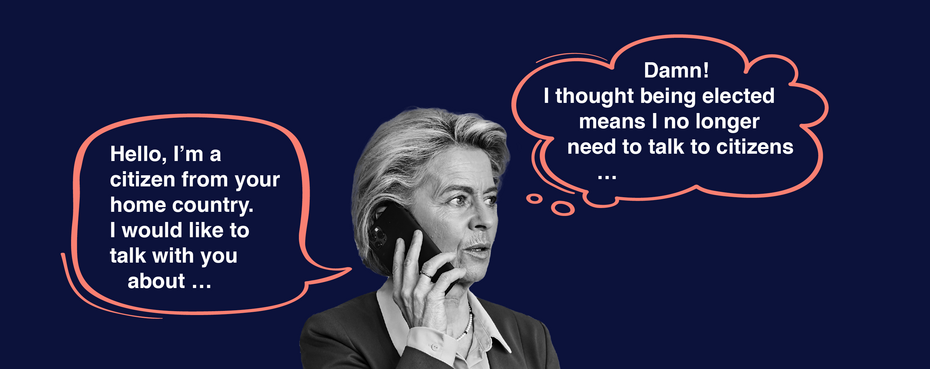
For the first time, we are presenting our free software tool: DearMEP, designed to make political participation simple and convenient.
At EU level, we express our views on the UN’s draft “Global Digital Compact” in an oral statement, calling for strong privacy protections, inclusive participation, and an open, stable Internet. We’ll keep pushing these priorities in the ongoing UN consultations.
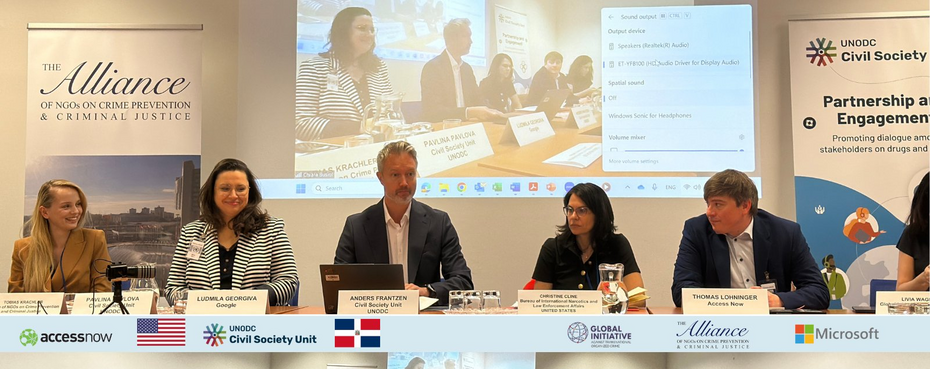
At a side event of the 33rd UN Commission on Crime Prevention and Criminal Justice (CCPCJ33), we promote inclusive partnerships against cybercrime and highlighted the vital role of civil society in addressing IT security threats.

We meet Signal President Meredith Whittaker at the Hofburg to raise awareness together about the importance of encrypted communication.
Together with Paul Keller, we explore the opportunities and risks of digital infrastructure at the „re:publica“: Open future or a surveillance dystopia?
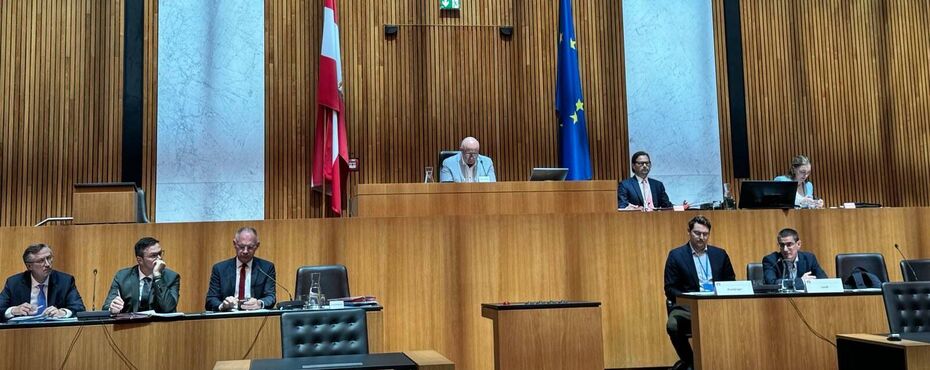
The Federal Government stumbles in its attempt to implement the European directive on a higher level of cybersecurity (NIS2). We speek as experts at the hearing of the Austrian Interior Committee.
The technical implementation plans for the European digital ID (under the eIDAS Regulation) fall far short of the legally mandated safeguards for human rights and privacy. We highlight what needs to change.
In a joint statement, we call on the European Commission to withdraw its flawed proposal for chat control.
Ahead of the next round of negotiations for the UN Cybercrime Convention, we are warning the European Commission and EU Member States about the risk of legitimising human rights–hostile practices through this surveillance treaty.
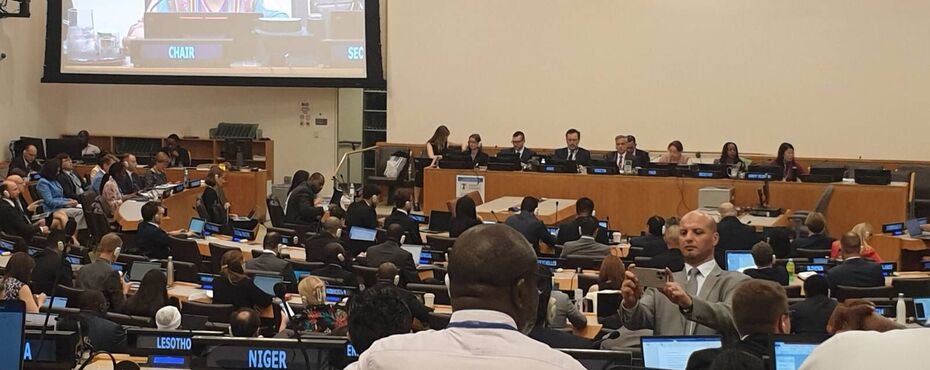
We are at the final negotiations for the UN Cybercrime Convention in New York. Together with representatives from industry and the tech community, we warn until the very last moment about the dangers of the treaty. We were shocked when the human rights–hostile convention was adopted despite numerous objections from a wide range of stakeholders.
We must sound the alarm! The technical framework for the European digital identity introduces surveillance tools that ignore or even contradict the eIDAS Regulation. We have addressed an open letter to the European Commission and Member States.
We are once again urging EU Member States to vote against the Cybercrime Convention at the UN General Assembly. Despite long-standing warnings, this global surveillance treaty was unanimously adopted by the Assembly on December 24.
After our strong criticism of the technical plans for the European digital ID, EU Member States are resisting the EU Commission’s reckless proposal.
The new Digital Commissioner has the power to protect an open Internet. Our appeal to Henna Virkkunen.
With a sleight of hand, the EU Commission undermines its own promise to protect users of the digital eID after just two weeks. We explain what’s happening.

Watch: EU's Digital Identity Systems - Reality Check
We’re heading to Hamburg for Europe’s largest hacker event! There, we will discuss the current importance of a free Internet and provide a reality check on digital ID systems.
2025
Together with 15 civil society organizations we call on the EU Commission to close the loopholes in the digital wallet and ensure transparency and control for users.

We proudly present DearMEP - we are releasing our free software tool! After two years of intensive development, DearMEP is ready for use and can be customised for each campaign to facilitate political participation and hold decision-makers accountable.

Happy Birthday epicenter.works! We are celebrating 15 years of relentless commitment to the civil society. From a small student movement to an established association.
We publish the minutes of the FPOE-ÖVP coalition talks and analyse the most important points relating to network policy. This reading raises concerns about Austrian´s future as a liberal democracy.
We are at RightsCon in Taipei - the world's leading summit on human rights in the digital age. On stage with Raquel Renno Nunes, Nikhil Pahwa, and Alissa Starzak, Thomas Lohninger explains the current state of net neutrality.
After much back and forth, the ÖVP, SPÖ, and Neos parties have finally agreed on a government program. We analyse and evaluate all aspects of network policy and see this as our work program for the coming years.
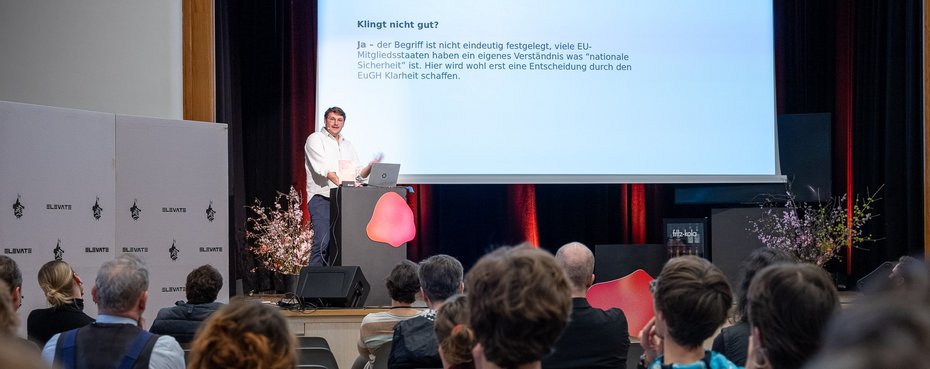
We are hosting the network policy evening as part of the Elevate Festival in Graz, providing exciting insights into real-time biometric surveillance, AI ethics, and network policy in India.
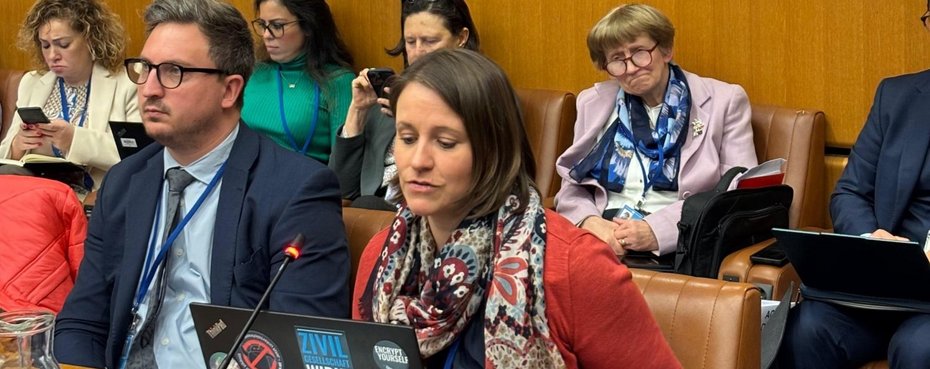
At the UNODC preparatory meeting for the 2026 Crime Congress in Abu Dhabi, we are sending a clear message: spyware and biometric surveillance threaten our fundamental rights.
At KURS 2025 – Payment Transactions, Sebastian Kneidinger talks about the EU ID Wallet as a new form of identity verification.
At the Digital Health Symposium, Thomas Lohninger poses the question in his keynote speech: Where has patient confidentiality gone?
As the public consultation period for the federal Trojan law (Bundestrojaner) begins, we are among the first to submit our statement and analyse the subsequent submissions. The conclusion is clearly
Together with the Society for Civil Rights (GFF), the Federation of German Consumer Organisations and Prof. Barbara van Schewick, we have filed a complaint with the Federal Network Agency. We are exposing arificial throttling of Deutsche Telekom – a clear violation of net neutrality – and are advocating for an open an fair internet for all.
At re:publica, we engage in a debate with Deutsche Telekom. As part of the Netzbremse alliance, we are taking legal action against the company and demanding answers.
We are publishing the concept note for our new project, eIDAS Monitor. The platform creates transparency and aims to ensure that the EU identity system does not allow for any violations of fundamental rights, discrimination, or manipulation.
In June, we submit two statements to the European Commission's Call for Evidence: one on the retention of telecommunications data and one on the Cyber Security Act. With this, we are directly contributing our expertise to European legislation.
In Austria, automated facial recognition is also making its way into everyday life. Using a recent case at a climate protest, we reveal how error-prone these systems are - and what dangerous consequences they can have.

epicenter.works is turning 15! We are celebrating our anniversary together with many supporters and companions.
As part of the Spyware Coordination Group, we call on the EU institutions to take concrete measures against the growing threat posed by spyware.
A sad day for Austria. Despite a damning assessment and an open letter published together with 50 organisations from 16 countries, the National Council approves state spyware.
We are critically monitoring the debate on the upcoming Digital Networks Act (DNA) and, together with 84 organisations, have expressed our concerns about current developments in the EU telecommunications sector. We are also participating in the European Commission's consultations.
We are participating in the Universal Periodic Review (UPR) for the first time, focusing on the topic of “digital.” We are calling on Austria to ban facial recognition and spyware, improve IT security, and establish clear human rights standards in international agreements, among other things.
We are actively helping to shape Europe's digital identity ecosystem. Together with government, industry and civil society, we are publishing a position paper outlining clear policy guidelines that empower citizens, public administration, and business alike.
Minister of the Interior Karner is planning a massive expansion of video surveillance in Austria's public spaces - without public debate, legal basis, or safeguards. We are raising the alarm!
Austria's new fundamental right comes into effect – the Freedom of Information Act. As two ministries are restricting its implementation right from the start, we explain the background and provide practical tips on how to use it
The new Health Telematics Act preserves freedom of choice: the ELGA opt-out remains in place - a key victory for which we have fought long and hard.
We publish openly licensed e-learning materials on data protection in digital identity systems and public infrastructure—free of charge for NGOs, academia, and the interested public.
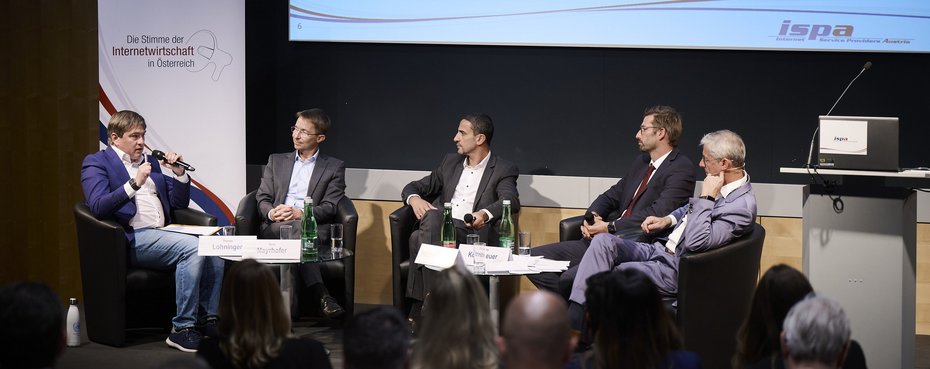
At the Internet Summit Austria, we sit together with other experts directly opposite the head of the DSN (Austria´s Directorate for State Protection and Intelligence Services) and confront him with his plans for a state spyware demanding a comprehensive surveillance bill.
Sebastian Kneidinger is in Ljubljana on our behalf to network with NGOs worldwide and discuss the use of artificial intelligence - balancing efficiency, fairness, and transparency.
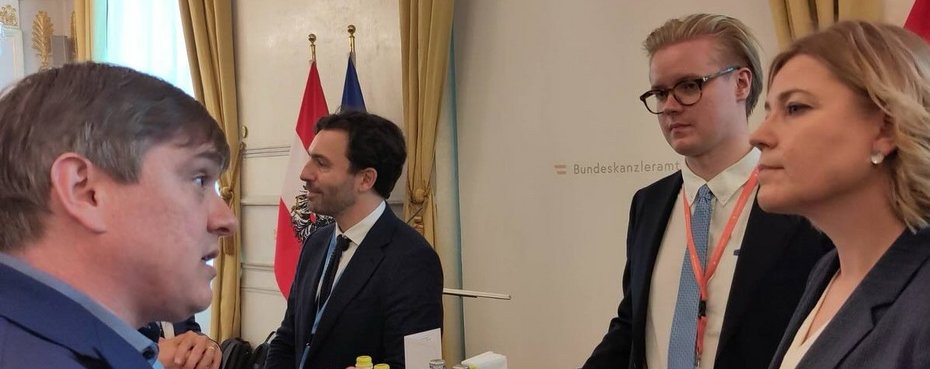
At the Federal Chancellery, we are speaking directly with Digital Commissioner Henna Virkkunen about the dangers of surveillance laws such as chat monitoring as part of the European working meeting on digital sovereignty.

